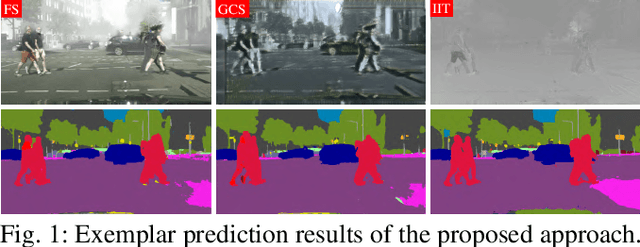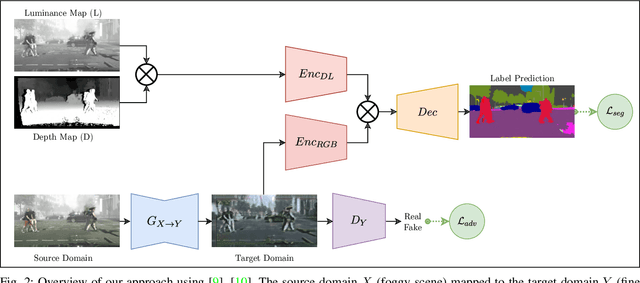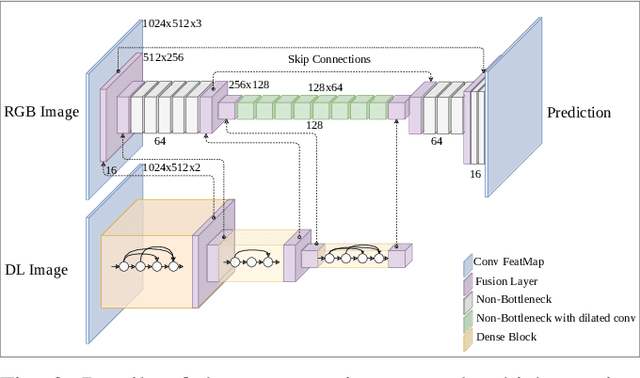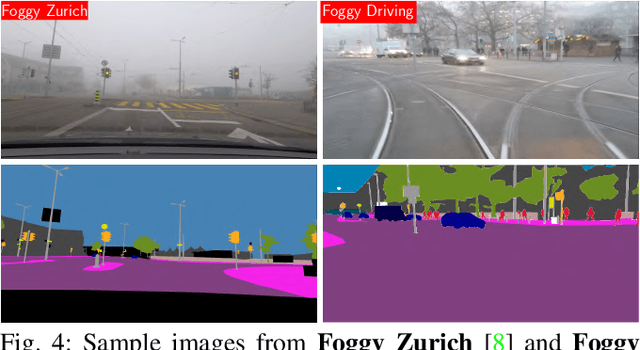Multi-Task Learning for Automotive Foggy Scene Understanding via Domain Adaptation to an Illumination-Invariant Representation
Paper and Code
Sep 17, 2019



Joint scene understanding and segmentation for automotive applications is a challenging problem in two key aspects:- (1) classifying every pixel in the entire scene and (2) performing this task under unstable weather and illumination changes (e.g. foggy weather), which results in poor outdoor scene visibility. This poor outdoor scene visibility leads to a non-optimal performance of deep convolutional neural network-based scene understanding and segmentation. In this paper, we propose an efficient end-to-end contemporary automotive semantic scene understanding approach under foggy weather conditions, employing domain adaptation and illumination-invariant image per-transformation. As a multi-task pipeline, our proposed model provides:- (1) transferring images from extreme to clear-weather condition using domain transfer approach and (2) semantically segmenting a scene using a competitive encoder-decoder convolutional neural network (CNN) with dense connectivity, skip connections and fusion-based techniques. We evaluate our approach on challenging foggy datasets, including synthetic dataset (Foggy Cityscapes) as well as real-world datasets (Foggy Zurich and Foggy Driving). By incorporating RGB, depth, and illumination-invariant information, our approach outperforms the state-of-the-art within automotive scene understanding, under foggy weather condition.
 Add to Chrome
Add to Chrome Add to Firefox
Add to Firefox Add to Edge
Add to Edge